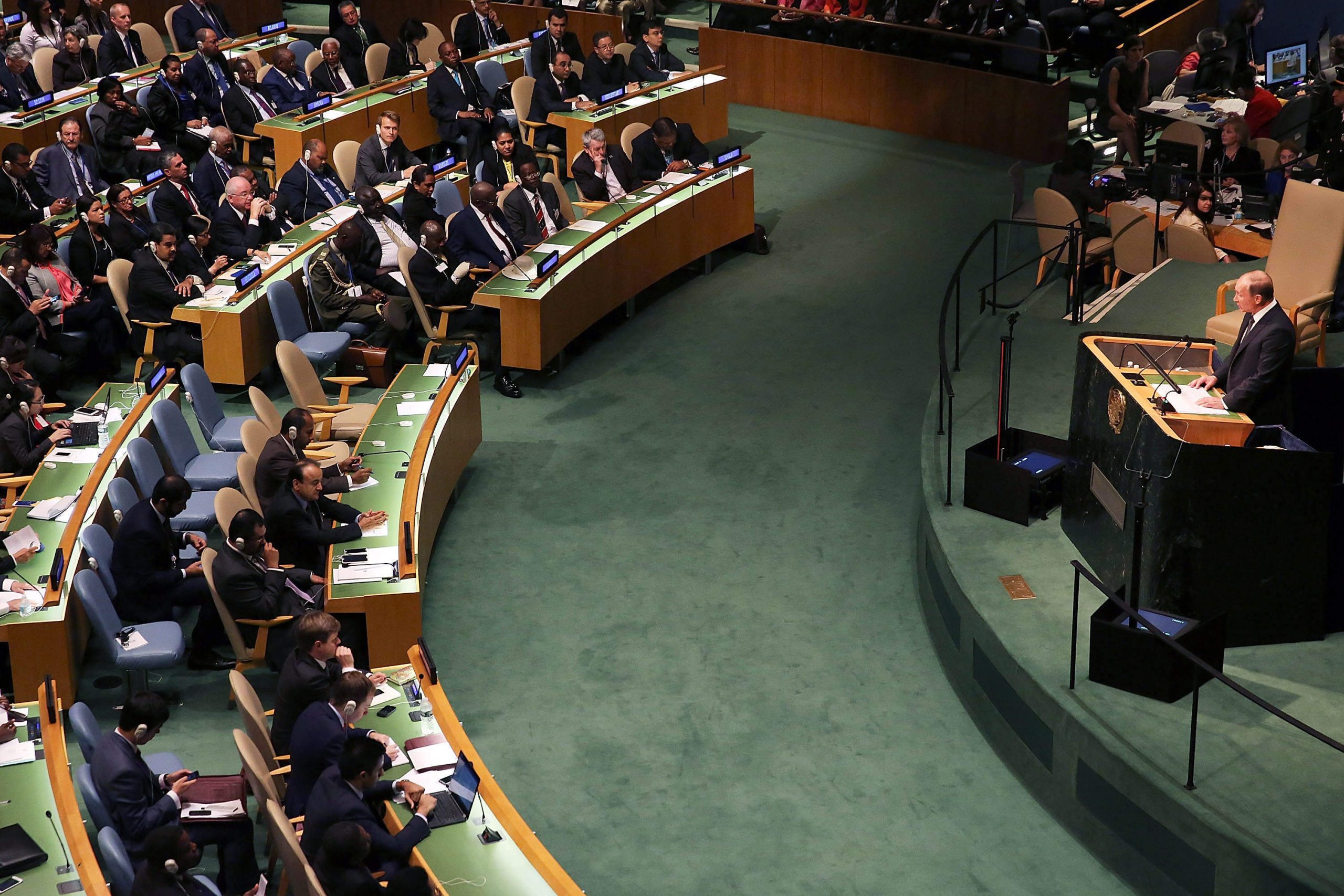
The UN general assembly has played host to several groundbreaking moments. For drama, it’s hard to beat Mikhael Gorbachev calling the end of the Cold War in 1988 or Hugo Chávez declaring that the podium still smelt “of sulphur” from its use by the “devil” George Bush in 2006. Compared to previous conferences, this week is likely to remain fairly subdued. Yet what today’s speeches from US president Barack Obama and Russia’s Vladimir Putin lacked in theatricals, they made up for in political significance.
The main discussion centred over strategy in the Middle East, with the two also obliquely trading blows on Ukraine, trade sanctions and America’s claims of Russian state repression.
Although the US and Russia both broadly agreed on taking co-operative action to halt Isis, they differ in their long-term strategy regarding the Syrian president Bashar al-Assad’s role in the struggle. The ongoing tension was exemplified by David Cameron’s remarks before the general assembly this morning, in which he re-iterated his previous demands for Assad’s departure, but did not rule out the president’s role in a “transitional” period – a softening of his previous stance. Cameron’s statements will be seen as a victory for Russia and Iran, who have maintained that Bashar al-Assad must remain in power to provide stability in the fight against Isis – a position Putin re-affirmed in an interview with US television program 60 Minutes during which he voiced support for the “legitimate government” in Syria.
Addressing the assembly in New York this morning, Obama made several references to Russia’s recent actions in the Middle East and Ukraine. Lambasting groups who “spread disinformation or suppress dissent”, Obama cited the original ideals of the post-war UN charter in calling for a unified response to climate change, financial instability and the threat of global terrorism.
In a speech which carefully set its vision for global consensus against the major conflicts of the twentieth century, including the “old” adversaries of Russia and China, Obama warned that “internal oppression and foreign aggression” had the potential to “unleash forces” which threaten security worldwide.
Pointed references to those who believe “we should support tyrants like Assad” or “the measure of strength is . . . defined by territory” will be seen by many as a specific challenge to president Putin, with Obama’s warning that he “[leads] the strongest military that the world has ever known” easily read as a veiled threat. “We can’t stand by when the sovereignty of a nation is flagrantly violated,” Obama said. “If that happens to a sovereign nation like Ukraine, it can happen to any nation here.”
Yet the president stated that he would be happy to co-operate with any state willing to “work together” to achieve peace in Syria, including Russia and Iran. “In the face of suffering families, our nation of immigrants sees itself,” he said.
In response, Putin complained about “so-called democratic revolutions” which are exported from the West, pointing out how a “single centre of domination” – the United States – came to power after the Cold War. He called the “block thinking” of the period, “still present among some of our colleagues”, counter-productive.
It was one of several references to Ukraine. Putin criticised Nato’s expansion and accused its military structure of offering a “false choice” to post-Soviet nations, and claimed the conflict in Ukraine had been orchestrated “from outside”. Putin also referred to the recent sanctions imposed on Russia over their actions in the region, which he characterised as an act of economic dominance in which a select few conspire to control the movement of free trade.
The Russian president addressed his most positive remarks to Muslim leaders, asking for them to encourage those radicalised to terrorism back to “normal life”, and calling for a restoration and strengthening of statehood in the Middle East, with the UN providing “comprehensive” support – financially and in terms of military help – to governments in the region. However, “any assistance to sovereign states must be offered, not imposed”, he warned, including “comprehensive assistance to the legitimate government of Syria”. For Russia, that can only mean Assad.






